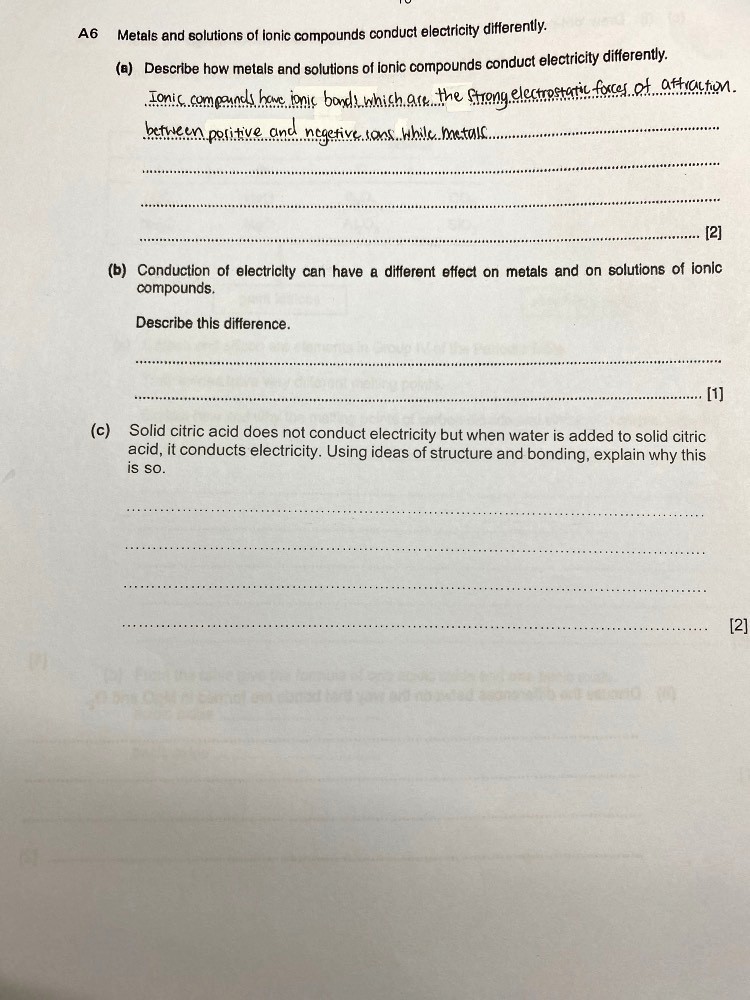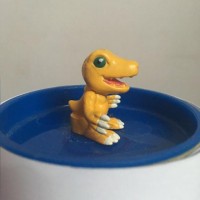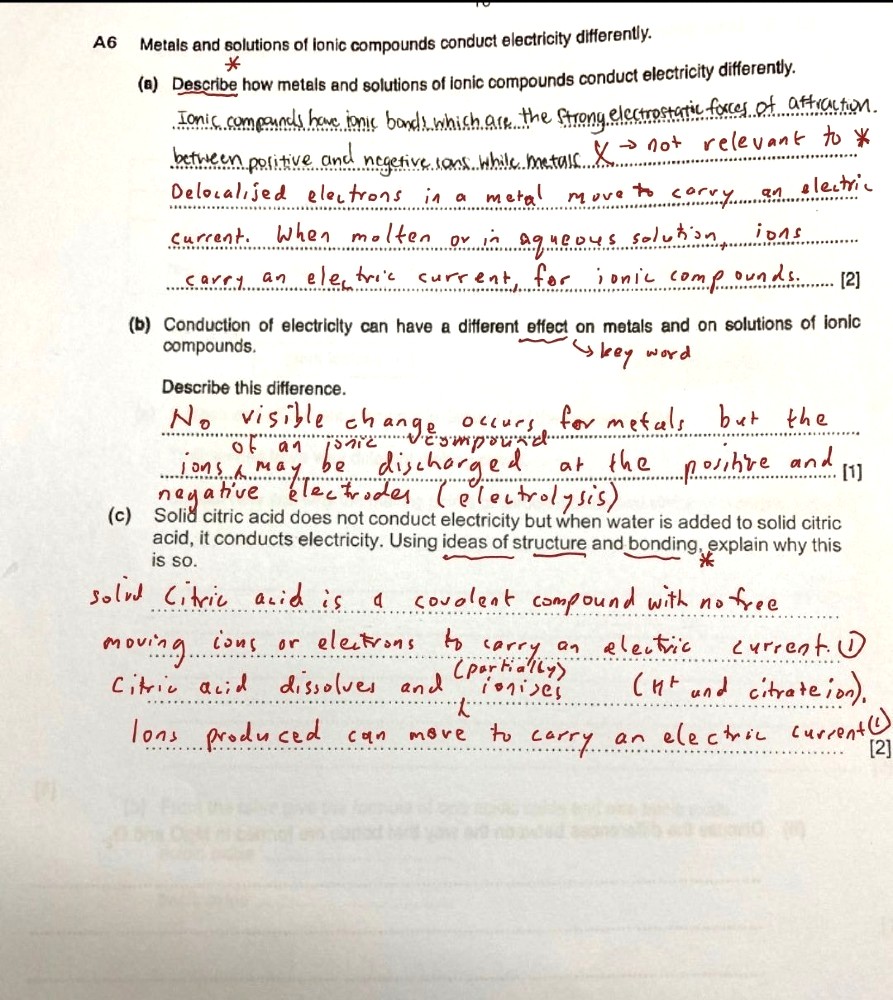Ask Singapore Homework?
Upload a photo of a Singapore homework and someone will email you the solution for free.

Question
secondary 3 | E Maths
One Answer Below
Anyone can contribute an answer, even non-tutors.

Don’t understand this question. Please help
Basically, it goes like this. For ionic compounds which can dissolve in water, the ions are actually broken apart from their lattice structure and are thus able to move freely. The moving ions provide a pathway for electrical conduction to "complete a circuit", so solutions of ionic compounds rely on ions to conduct electricity.
On the other hand, in metals, the positive ions are actually surrounded by a large network ("sea") of delocalised electrons which are able to move freely around the positive ions. These electrons are the reason for the good electrical conduction of metals.
Note that ionic compounds can conduct electricity in aqueous states due to free-moving IONS, while metals can conduct electricity in solid state due to free-moving ELECTRONS.
I'm not certain what they actually want for this question (it appears similar to part (a)), but I believe that in some cases, if electricity runs into aqueous solutions, a process called electrolysis could happen, where components of an aqueous solution (or even the water of dissolution itself) can even decompose into simpler products. No such phenomenon occurs with metals.
Citric acid is actually a solid (I believe it's simple molecular) compound made of a bunch of atoms bonded covalently together including hydrogen. There are no free electrons in this compound (all electrons have been used in bonding) and no free moving ions in this compound (it's a solid!), so there is no good pathway for electrical conduction.
Add water to this solid and it becomes aqueous (yes, citric acid dissolves in water). The nice thing about acids is that they produce hydrogen cations when dissolved in water (as does complicated anions). These ions are able to move within the boundaries of the water of dissolution, so the new result can conduct electricity.
See 1 Answer





